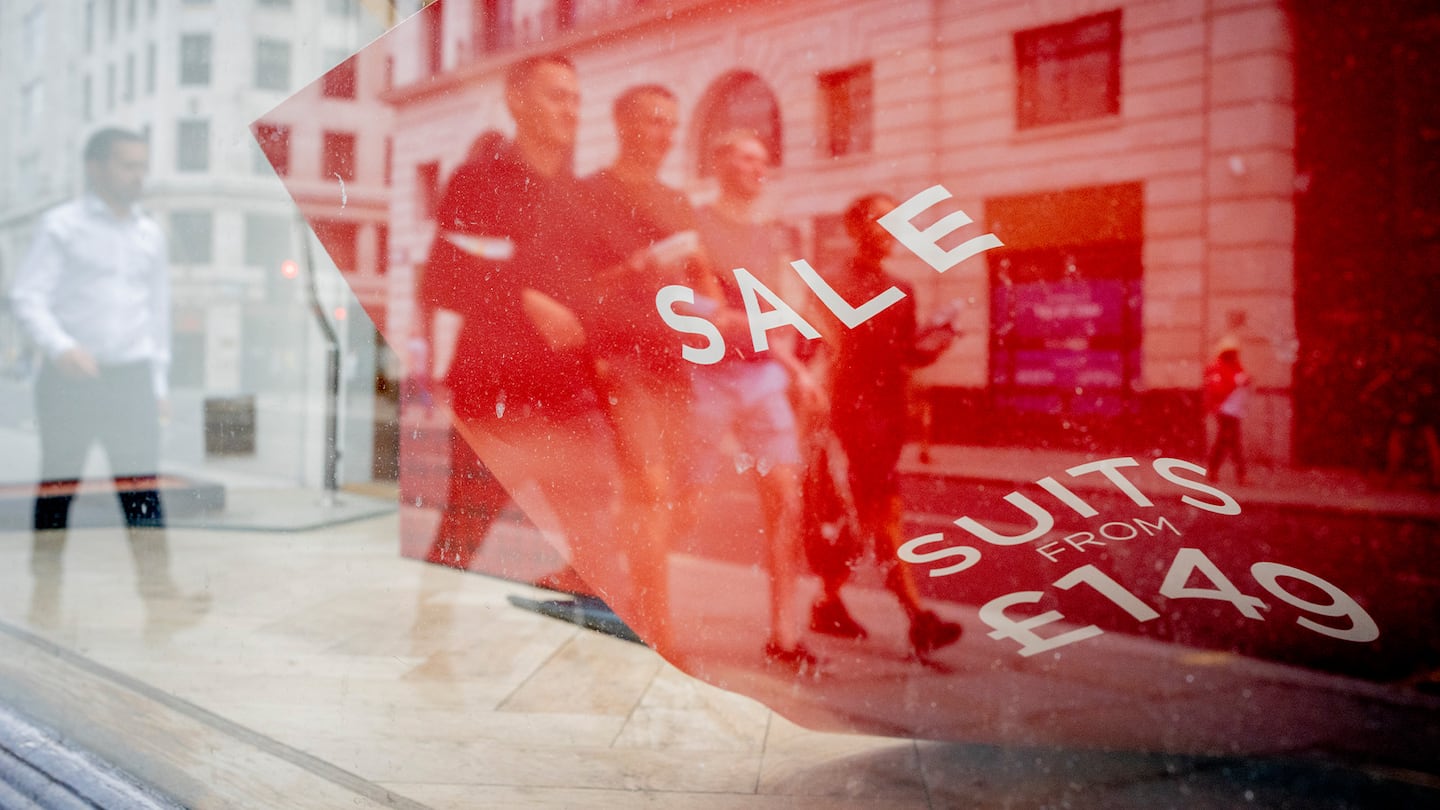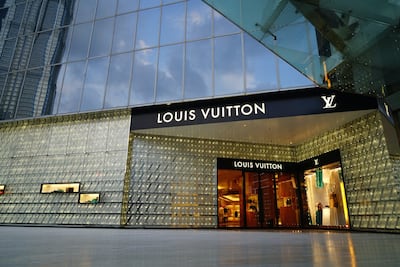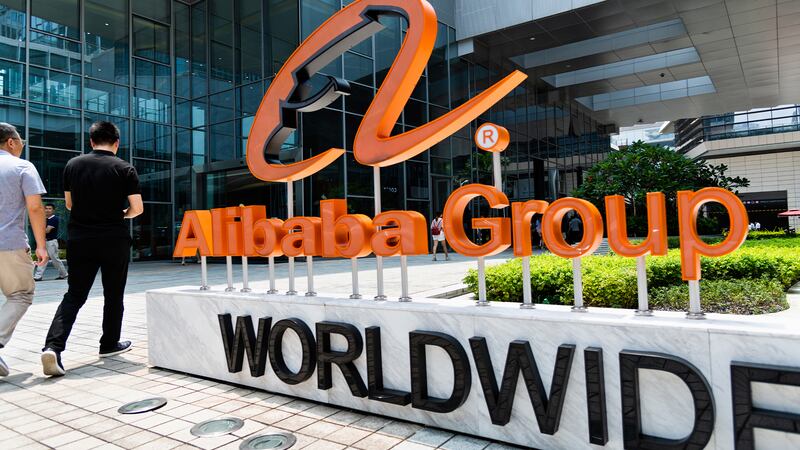
The Business of Fashion
Agenda-setting intelligence, analysis and advice for the global fashion community.

Agenda-setting intelligence, analysis and advice for the global fashion community.

Big Tech has already laid off globally over 100,000 employees this year, according to Layoffs.fyi, with Chinese media giant Tencent and buy-now-pay-later company Affirm among the latest to cut staff.
Fears that cuts at Microsoft and Amazon would lead to job losses in the wider economy have so far proven unfounded. Despite warnings signs that the economy is headed for a period of slow growth, or even recession, the US unemployment rate fell to 3.4 percent in January, a 53-year low.
Still, fashion hasn’t been entirely immune from the need to cut costs. Neiman Marcus, PVH, VF Corp., Everlane and H&M are just some of the retailers that announced layoffs in recent months. Many cited economic uncertainty as the primary reason to reduce headcount, as consumer spending began to cool in the second half of 2022 (though US retail sales unexpectedly spiked in January).
Retailers dependent on online sales have it worse, as they’re also compensating for the post-pandemic pullback in online shopping. Canadian e-tailer Ssense, for instance, laid off 138 employees or 7 percent of its total headcount last month, while The RealReal said it would eliminate 230 jobs last week, or also about 7 percent of its workforce.
ADVERTISEMENT
For fashion companies bracing for a year of stagnation or declining sales, eliminating non-essential corporate salaries and closing underperforming stores are relatively easy levers to pull.
“A lot of brands and retailers are expecting 2023 to be a very muted year in terms of growth,” said Neil Saunders, managing director at GlobalData, a consultancy. “When people are predicting declines, it’s all about cutting costs to match the [muted] demand.”
For some e-commerce companies that have eliminated jobs in recent months, it was a matter of correcting for an aggressive hiring spree in 2021, when tech valuations and growth expectations were at a high.
Last July, Shopify announced it would cut 10 percent of its workforce, or 1,000 employees. Chief executive Tobias Lütke said in a memo at the time that he had made the wrong call to expand the platform in 2020 in response to what turned out to be a temporary spike in online shopping activity.
For others, the layoffs are a necessary step to protect profits at a time when sales are slow.
The initial signs of a slowdown appeared last summer, when the post-pandemic growth streak — fuelled by pent-up demand, high savings, and glee for the world opening back up again — began to run out of steam. Second-quarter sales for companies like PVH and VF Corp. dropped year-over-year, a decline that carried over into the holiday season for many brands.
Across the board, retailers lowered their 2023 forecasts as they confront not only dwindling consumer confidence but an increase in the cost of operations, including raw materials and shipping. They also had to discount more products to reduce an inventory overhang, hurting margins.
“With cost pressures increasing and weakened demand, the bottom line will come under a lot of pressure, and a lot of retailers are trying to avoid that,” Saunders said.
ADVERTISEMENT
Barring an economic miracle, more layoffs are likely coming. Public companies face pressure from shareholders to keep costs down. Big, established retailers can attract activist investors who will push for even deeper cuts, while start-ups that have seen their post-IPO share prices plunge are scrambling to move up their timetable for reaching profitability.
“In a lot of cases, layoffs really were the right decision,” he added. “During the boom of 2021, a lot of retailers were quite gung-ho about recruitment and they based that on forward predictions of strong demand that’s now petering away.”
THE NEWS IN BRIEF
FASHION, BUSINESS AND THE ECONOMY

Joan Mitchell Foundation says Louis Vuitton used paintings without permission. The estate of artist Joan Mitchell has demanded Louis Vuitton pull a new advertising campaign, which allegedly features at least three art works by the late abstract painter that were used without permission.
Mytheresa growth slows, profits narrow amid wider challenges for luxury e-commerce. Mytheresa said the value of goods sold on its platform rose 7.8 percent year-on-year to €216 million ($229 million) in the three months through Dec. 21, 2021, a slowdown from 21 percent growth the previous quarter. Revenues rose just 1.3 percent year-on-year to €190 million, the luxury e-tailer said, while adjusted EBITDA fell 37 percent to €17.7 million.
Farfetch’s sales drop, still beats expectations. Farfetch’s year-on-year sales decline continued in the final quarter of 2022 as the luxury e-commerce firm faced sustained geographic challenges in Russia and China. But the company expects new partnerships will help sales grow more than 10 percent in 2023, and reach as high as $10 billion by 2025.
Ray-Ban maker Essilorluxottica’s sales rise on solid European growth. Luxury eyewear maker EssilorLuxottica on Thursday reported a rise in fourth-quarter revenues, citing sound growth amid a challenging environment, but its performance in China declined because of Covid-19 restrictions.
ADVERTISEMENT
Lanvin group reports 38 percent revenue increase in 2022. Lanvin Group reported on Friday unaudited annual revenue of €425 million ($454.5 million) for 2022, a 38 percent increase year-over-year. It marks the first time the Chinese luxury group, which saw the departure of chief financial officer Shang Koo last month, has released financial figures since its New York SPAC listing in December.
Zalando to cut hundreds of jobs. The German online fashion retailer is to cut hundreds of jobs across the company, citing over-expansion in some areas and a more difficult economic environment since the pandemic.
H&M teams with Mugler for latest high-low collaboration. Fast fashion giant H&M has partnered with L’Oréal-owned Mugler and its creative director Casey Cadwallader for its latest designer collection, which will debut online and in selected stores this spring.
Hermès to pay €4,000 bonus to employees as sales surge. Hermès will pay a one-time year-end bonus of €4,000 to each of its 19,700 employees amid surging sales. Fourth-quarter sales rose 23 percent year-on-year, excluding currency swings, Hermès said Friday. Full-year revenues rose 29 percent to €11.6 billion ($12.4), allowing the leather-goods maker to reclaim its position as luxury’s third-biggest brand after Louis Vuitton and Chanel.
Watchfinder cuts prices 15 percent as Rolex and Patek Philippe values slide. Watchfinder & Co., the online pre-owned watch-selling platform controlled by Richemont, has dropped prices by about 15 percent. Watch values have been hit by slowing economic growth, higher interest rates and the collapse of crypto currencies.
Forever 21 relaunches in Japan as upscale clothier. Forever 21, which came to epitomise the fast fashion movement by selling trendy, of-the-moment clothing to teens at bottom-barrel prices, is relaunching in Japan by overhauling itself as an upmarket clothier. Local partner Adastria Co. wants to open about a dozen physical stores in Japan and aims for revenue of ¥10 billion ($74.3 billion) in five years, Sugita said.
THE BUSINESS OF BEAUTY

Chanel set to open a beauty store in Williamsburg this summer. Chanel is set to open a store in Williamsburg, Brooklyn this June, according to a government construction announcement posted Sunday. It is the latest luxury brand to take interest in the trendy neighbourhood as the hybrid work-from-home lifestyle disperses spending outside of Manhattan.
Revlon reaches lender settlement, sends bankruptcy plan to vote. Revlon Inc announced a deal with a holdout faction of lenders, removing the largest remaining roadblock to a plan that would allow the cosmetics maker to exit from bankruptcy by April.
Beautycounter enters Ulta Beauty. The clean beauty brand, which was valued at $1 billion in 2021 after private equity The Carlyle Group took a majority stake, will be available on Ulta.com starting Feb. 26, and in 500 stores nationwide on Mar. 5. The move marks Beautycounter’s first big retail presence since doing a pop-up concept with Sephora in 2020.
PEOPLE

Former Chanel CEO Maureen Chiquet joins La DoubleJ as chairwoman. In the newly created role, Chiquet, whose appointment is effective immediately, is tasked with helping scale the brand, working closely with co-founders Martin and Andrea Ciccoli to capitalise on current momentum and spearhead global growth.
Carven names Louise Trotter Its creative director. The former designer of Lacoste and Joseph will be Paris-based Carven’s new creative director, the brand said Wednesday. The brand, which has been owned by the Chinese group Icicle since 2018, will return to the Paris Fashion Week schedule with Trotter’s debut show in September.
MEDIA AND TECHNOLOGY

Alibaba beats quarterly revenue estimates as Covid curbs ease. Alibaba Group Holding Ltd reported better-than-expected quarterly revenue on Thursday, as the Chinese e-commerce giant benefited from easing Covid-19 curbs. Revenue rose 2 percent to 247.76 billion yuan ($35.92 billion) for the three months ended Dec. 31, compared with a Refinitiv estimate of 245.18 billion yuan drawn from 23 analysts.
Compiled by Diana Pearl.
As the German sportswear giant taps surging demand for its Samba and Gazelle sneakers, it’s also taking steps to spread its bets ahead of peak interest.
A profitable, multi-trillion dollar fashion industry populated with brands that generate minimal economic and environmental waste is within our reach, argues Lawrence Lenihan.
RFID technology has made self-checkout far more efficient than traditional scanning kiosks at retailers like Zara and Uniqlo, but the industry at large hesitates to fully embrace the innovation over concerns of theft and customer engagement.
The company has continued to struggle with growing “at scale” and issued a warning in February that revenue may not start increasing again until the fourth quarter.